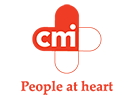
As the summer draws to a close, millions of children are returning to school across Vietnam. In addition to new books and school supplies, prepare your kitchen with nutritious foods, as this is an important part of their learning. Healthy eating is essential for a child’s development, academic performance, and overall health.
Here are five nutritional tips to help your children eat well without wasting time during the day:
Plan your meals
To save time and energy in the morning, shop ahead to plan meals for the day. Cut fruits and vegetables in advance when you have time so they’re ready to use when you need them. Research shows that children enjoy eating fruits and vegetables more when they are already cut. In September, tangerines, rambutans, longans and pears are in full swing: that’s enough to fill your vitamin and mineral reserves! It’s also great to have washed and ready to eat fruits like cherry tomatoes, mango and watermelon chunks, bananas and carrot sticks. To allow for longer-term energy support, add protein foods you purchased ahead of time such as cheese, cashews, sunflower seeds, or peanut butter.
Focus on complex carbohydrates
School-aged children do better on exams and concentrate better when eating a balanced breakfast. When preparing meals for your children, be sure to include whole grains or fortified grains low in added sugars like breads and cereals (aim for less than 10 grams of sugar per serving of cereal). Quality carbohydrates from foods made from grains and fruits are rich in nutrients and provide the brain with a constant supply of energy to help learning. A healthy breakfast for children can consist of eggs, toast and fruit. To avoid the rush of the morning pre-cooked hard-boiled eggs and prepare in advance a fruit salad.
Include foods rich in omega-3s for heart, brain and eye health
Omega-3 fatty acids are important throughout our lives. Omega-3 fatty acids are helping to maintain a healthy heart and positively impact brain function and cognitive development, and play a key role in eye health and visual development. Acid eicosapentaenoic (EPA) and Docosahexaenoic acid (DHA) are primarily found in some fish, although some brands of eggs may be fortified. The best sources are fatty fish, such as salmon, tuna, mackerel, and sardines. Alpha-linolenic acid (ALA) is found primarily in plant, including flax seeds, chia seeds, and walnuts, but also in some fish and meats. To help your kids get enough of these important nutrients, send them to school with a lunch full of omega-3s, like a tuna salad sandwich and orange juice, milk, or DHA fortified yogurt. Make sure the fortified products you eat actually contain EPA and DHA, not just ALA. While ALA may have health benefits on its own, many consumers equate this omega-3 with EPA and DHA, while the health benefits just don’t compare.
Pack healthy snacks
It would be great if you had time to cook everything “homemade” for your kids but reality is that sometimes you have to buy ready meals for your convenience. Unfortunately, the packaged snacks that appeal to children’s taste buds are often loaded with sugar, artificial colors and preservatives. Find a few basic healthy snacks your kids enjoy and have them ready when it’s snack time. Be sure to read the ingredient list to see how much sugar is in the product and not just the marketing wording on the front of the package as these can often be misleading.
Keep your kids hydrated
It is extremely important that children stay well hydrated to avoid fatigue and maintain high levels of concentration. Proper hydration can also help children to maintain a healthy weight, as dehydration often masquerades as a hunger signal and can lead to overeating in children (and their parents too!). Avoid sugary drinks and sodas and give your kids a bottle of water instead. If your kids are bored with plain water, add slices of citrus fruits, berries or a little 100% natural fruit juice to make the water taste better!
By Soraya Ziou, Dietitian at Centre Medical International (CMI)





